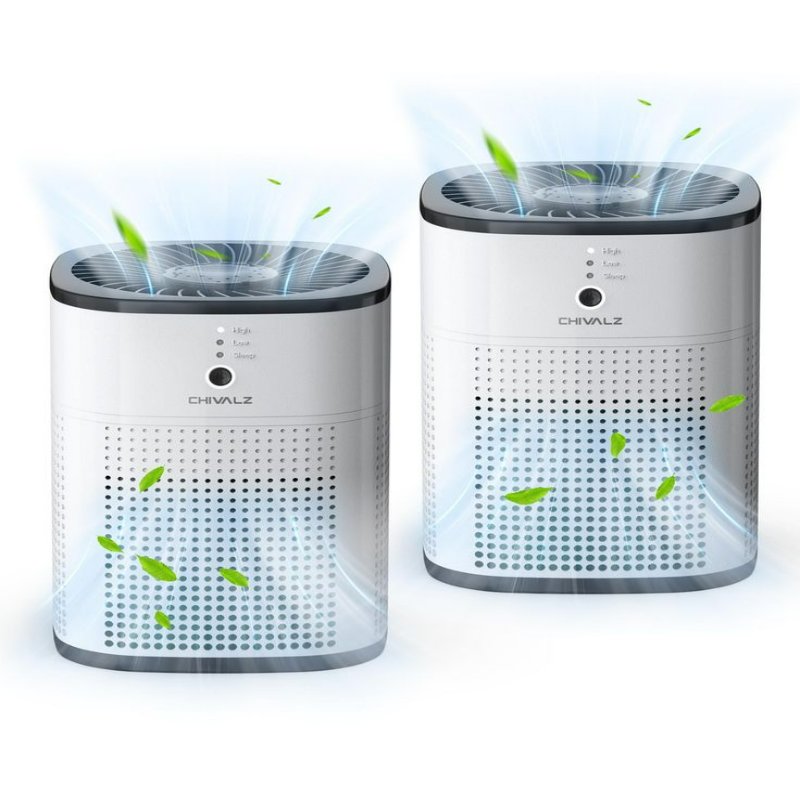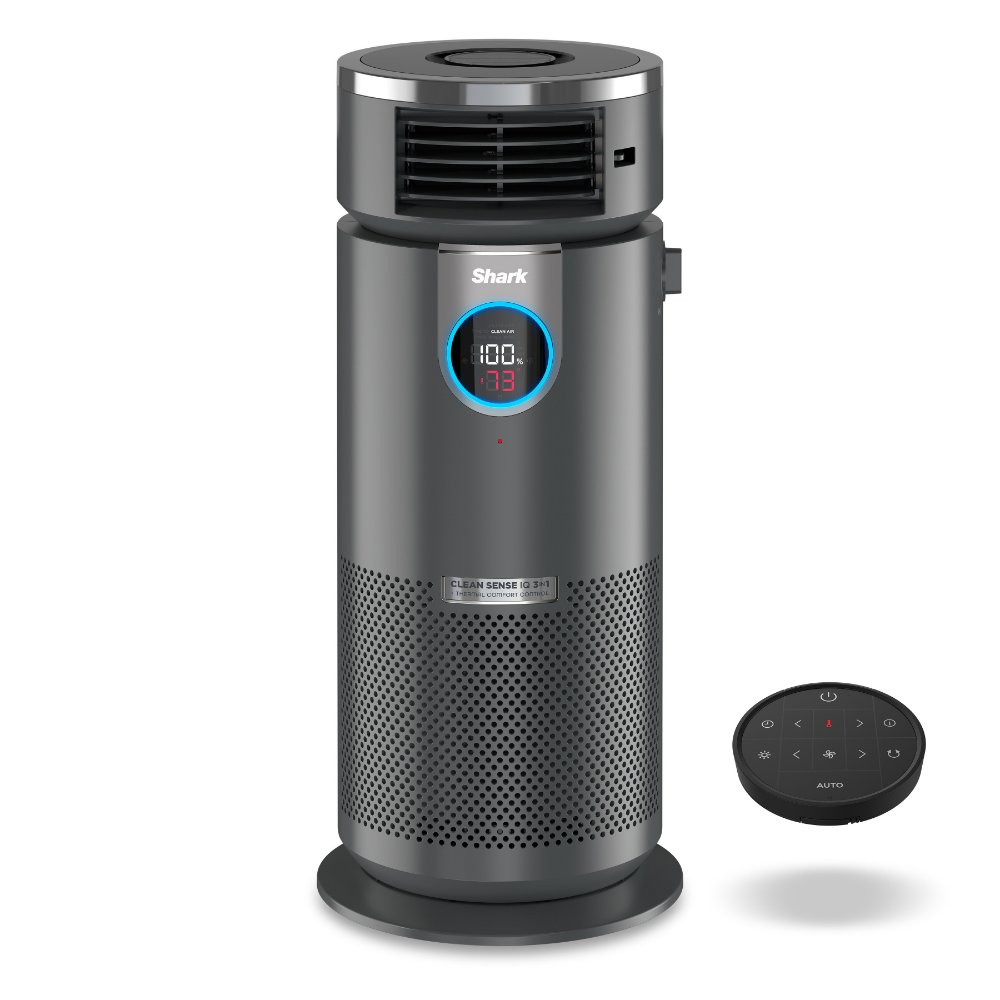Introduction to Air Quality Devices
Improving indoor air quality is vital for health and comfort. Air purifiers and humidifiers are popular devices for this purpose. Each has different functions and benefits.
Air Purifiers: What They Do
Air purifiers remove contaminants from the air. They use filters to trap particles like dust, pollen, and smoke. This cleans the air you breathe.
Humidifiers: Their Purpose
Humidifiers add moisture to the air. They combat dry conditions which can irritate your skin and respiratory system. They do not purify the air.

The Workings of an Air Purifier
Air purifiers clean the air that you breathe. They suck in air, trap harmful particles and release cleaner air back into the environment.
Types of Filters
Air purifiers use various filters to clean the air. HEPA filters are common because they trap small particles effectively. Another type is the activated carbon filter, which eliminates odors and gases.
Targeted Pollutants
Air purifiers aim to remove pollutants that affect air quality. These include dust, pollen, smoke, and VOCs. They help reduce the presence of bacteria and viruses in the air as well.
Humidifiers and Their Functionality
Humidifiers increase the moisture in your indoor environment. They are essential in dry climates or seasons, especially when indoor heating systems are in use. By emitting water vapor or mist, they alleviate conditions caused by dry air and can contribute to overall comfort and health.
Types of Humidifiers
There are several types of humidifiers, each with its way of adding moisture to the air:
- Steam Vaporizers: Heat water to create steam, which cools before leaving the machine.
- Ultrasonic Humidifiers: Use ultrasonic vibrations to produce a fine mist of water.
- Evaporative Humidifiers: Blow air through a wet wick or filter to evaporate water into the air.
- Impeller Humidifiers: Use a rotating disk to fling water at a diffuser, breaking the water into fine droplets.
Benefits of Adding Moisture
Adding moisture to the air with a humidifier offers several benefits:
- Comfort: Prevents dryness that can cause irritation in many parts of the body.
- Health: Can relieve symptoms of a cold, sore throat, cough, and dry skin.
- Well-being: Helps preserve the natural moisture of your skin and hair.
- Protect Furnishings: Moisture can prevent the wood from cracking and static electricity.
- Plant Health: Indoor plants thrive better with higher humidity levels.

Health Impacts
How Air Purifiers Benefit Health
Air purifiers have a clear impact on health. By removing airborne particles, they help people with allergies and asthma. Air purifiers capture dust, pet dander, and pollen that cause sneezing and coughing. They also trap smoke and VOCs, cutting down on harmful chemicals in your home. This leads to cleaner air and fewer health risks like respiratory infections.
Some air purifiers use HEPA filters, known for trapping very small particles. These filters can even capture bacteria and viruses, potentially reducing illness. A home with clean air can make breathing easier and improve overall well-being.
The Role of Humidifiers in Health
Humidifiers also benefit health by adding moisture to dry air. In arid climates or cold winters, they prevent dry skin, chapped lips, and nosebleeds. Proper humidity can ease symptoms of colds and flu by keeping the throat and nasal passages moist. This can reduce coughing and improve sleep.
However, it’s important to use humidifiers correctly. Overuse can lead to too much moisture, which might encourage mold growth and worsen allergies. The ideal humidity level is between 30% and 50%. At this range, humidifiers can help people with dry conditions feel more comfortable without negative side effects.
Situational Usage
Understanding the difference between humidifier and air purifier and when to use air purifiers or humidifiers can optimize your indoor air quality.
When to Use Air Purifiers
You should use air purifiers in several situations:
- Allergy Relief: They reduce airborne allergens like pollen, pet dander, and dust mites.
- Smoke Elimination: They are effective in removing smoke particles and odors.
- Illness Prevention: Helpful during cold and flu season by trapping viruses and bacteria.
- Reducing Pollution: Essential in areas with high outdoor pollution to clean the indoor air.
By using air purifiers during these specific times, you can create a healthier environment.
Ideal Situations for Humidifiers
Humidifiers are best used when addressing issues related to dry air:
- Dry Climate: Adds necessary moisture to the air in arid or heated environments.
- Health Support: Helps alleviate symptoms of colds and flu by moisturizing the air.
- Skin and Hair Health: Prevents dryness that can affect your skin and hair.
- Comfort During Sleep: Moist air can make sleeping more comfortable, especially in winter.
By choosing the right times to use a humidifier, you can enhance comfort and health at home.

Combining Air Purifiers and Humidifiers
Using air purifiers and humidifiers together can improve your air quality significantly. They serve different needs but complement each other well.
The Logistics of Using Both
To get the best results, place air purifiers and humidifiers in different spots. This avoids interference between the devices. An air purifier cleans the air, while a humidifier adds moisture. They can work at the same time without problems. Just ensure they are not too close, as the humidifier’s moisture may clog the purifier’s filters.
Maintenance and Care
To keep both devices running well, clean and maintain them regularly. For air purifiers, this means changing filters as advised. For humidifiers, replace the water daily and clean it each week. Use distilled water to prevent mineral buildup. Keeping both devices clean avoids mold and poor performance.
Making the Right Choice
Assessing Your Needs
Before buying an air purifier or humidifier, consider your needs carefully. Assess the air quality and the humidity of your space. Identify the main issues you face, such as allergens, pollution, or dry air. This helps determine whether an air purifier or a humidifier, or both, suit your home best. Air purifiers are ideal if you suffer from allergies or are in a polluted area. If dry air is the issue, causing discomfort or health problems, a humidifier might be the right choice. For the best results, you might need both.
Consulting Professionals
It’s wise to consult with a healthcare provider or an indoor air quality specialist. They can provide advice tailored to your specific health needs and environmental conditions. Professionals help you understand the difference between a humidifier and an air purifier in depth. They can also guide you on how to effectively use and maintain these devices. When in doubt, always seek professional advice to ensure you make a choice that enhances your well-being.
Conclusion and Final Recommendations
In conclusion, choosing between an air purifier and a humidifier depends largely on your specific needs. If allergens and indoor pollution are your main concerns, an air purifier is the better choice. It effectively removes harmful particles, improving the air quality significantly. On the other hand, if dry air is an issue in your home, leading to respiratory discomfort or skin problems, a humidifier will add the necessary moisture to alleviate these conditions.
For optimal indoor air quality, consider using both devices in different situations. An air purifier works best for removing allergens and pollutants, especially during high allergy seasons or in areas with high pollution. Meanwhile, a humidifier is ideal in dry climates or during winter to combat the effects of heating systems which dry out the air.
When deploying both devices, place them strategically to avoid interference; they can function simultaneously without compromising each other’s effectiveness. Regular maintenance is crucial; replace purifier filters and clean humidifiers as recommended to ensure they perform well.
Before making a purchase, assess the specific air quality issues in your home. Consulting a healthcare provider or air quality specialist can provide tailored advice and help you make an informed decision. Remember, the right air quality device can significantly enhance your comfort and health.